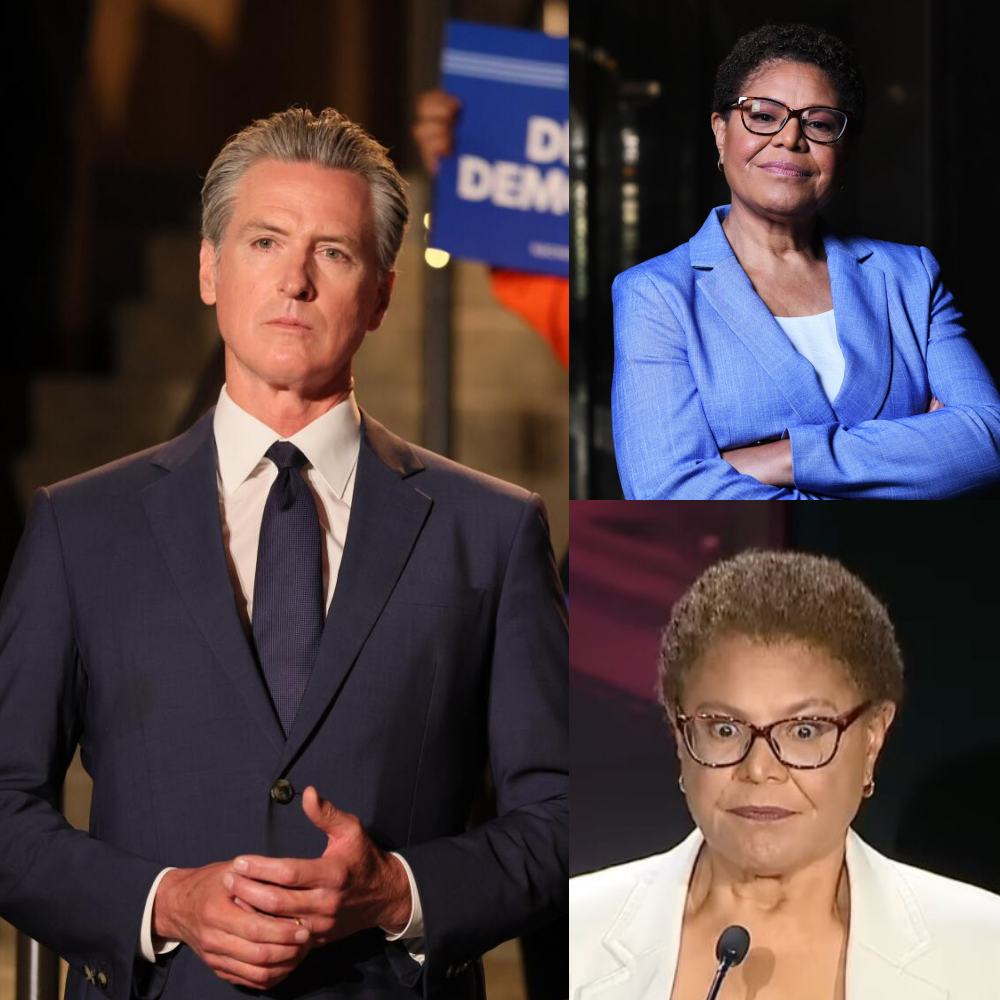
Something explosive is happening in California. For decades, the state has been the crown jewel of Democratic dominance—Hollywood glitz, Silicon Valley wealth, and a supermajority that seemed untouchable. But now, cracks are forming. From San Francisco’s boarded-up shops to Los Angeles’s crime-ridden streets, anger is boiling over. The once-unshakable Democratic machine is starting to wobble, and Californians are asking a question no one thought possible: is the Golden State finally turning red?
A State in Crisis
Under Governor Gavin Newsom, California was supposed to be the shining model of progressive leadership. Instead, it’s facing a wave of economic and political turmoil that has businesses and families running for the exits.
Businesses are fleeing in droves. From small family-owned shops to tech giants, companies say they can’t keep up with crushing regulations, high taxes, and constant red tape. Texas, Arizona, and Florida are opening their arms—and California is bleeding jobs and investment.
Crime is exploding. Major cities are plagued by rising homelessness, open-air drug markets, and lawlessness. Citizens are scared. Investors are leaving. And confidence in leadership is evaporating.
Trust in government is collapsing. From shady budget deals to redistricting maneuvers, critics say Newsom is more focused on protecting his own power than protecting his people.
For everyday Californians, the message is simple: this isn’t working anymore.
Newsom’s Language Games Backfire
One of the biggest symbols of the disconnect between leadership and citizens came from a single word: Latinx.
For years, Newsom proudly embraced the progressive label—using terms like “Latinx” in speeches to signal his allegiance to the activist left. But the backlash from Hispanic communities was swift and unforgiving. Polls show that the overwhelming majority of Latino Californians reject the term, seeing it as elitist and out of touch.
Now, Newsom is quietly backing away from the language he once championed, trying to rewrite history and pretend he never said it. But Californians remember. They see a politician more interested in word games than real solutions.
Proposition 50: A Power Grab in Plain Sight
If Newsom’s image problem weren’t bad enough, Proposition 50 is raising alarms across the state. The proposal would reverse California’s independent redistricting reforms, essentially giving politicians the power to redraw maps however they see fit.
Critics call it a blatant power grab—an attempt to manipulate democracy and silence voters at a time when Democrats are losing their grip. Instead of respecting the will of the people, Newsom’s allies are trying to rewrite the rules to guarantee themselves control.
One political analyst didn’t mince words: “It’s the kind of maneuver you’d expect in a corrupt third-world government, not in California. They’re terrified of losing power—and this is how they’re fighting back.”
Karen Bass’s Leadership Meltdown
While Newsom battles on one front, Los Angeles Mayor Karen Bass is crumbling on another. Her city is in chaos. Crime is rampant. Homelessness is spiraling. Streets are dirty, businesses are shuttered, and residents are fed up.
Instead of offering real solutions, Bass has leaned on one shocking move: telling business owners themselves to take responsibility for cleaning up the city.
Let that sink in. The Mayor of Los Angeles—one of the largest cities in the world—has shifted the burden of fixing her failures onto struggling shopkeepers and entrepreneurs.
To critics, it’s proof of total incompetence. One local business leader put it bluntly: “We’re paying the taxes. We’re following the rules. And now she wants us to play janitor for a city government that can’t get its act together? Enough is enough.”
The Media Cover-Up
What makes the anger burn hotter is the sense that the media is covering for Democratic leaders. When scandals erupt, when businesses flee, when crime skyrockets—the blame is shifted. Excuses are made. And anyone who dares to criticize Bass or Newsom risks being branded a racist, a bigot, or an extremist.
But that tactic is wearing thin. Californians aren’t buying it anymore. Increasingly, they see through the spin. They know the difference between racism and incompetence, between political smears and genuine criticism.
And they’re speaking out.
A Surge of Conservative Activism
From San Diego to Sacramento, from Orange County suburbs to rural farming towns, a movement is building. Citizens are rallying at town halls, pushing back against skyrocketing taxes, and demanding accountability. Conservative activism in California is no longer a whisper—it’s a roar.
The energy is unmistakable. Parents are confronting school boards over radical curriculum. Small business owners are banding together to protest destructive regulations. And communities are organizing to fight back against rising crime.
What was once unthinkable—California turning red—is now being whispered in every political circle.
The Bigger Picture
This isn’t just about California. If the bluest state in the nation shows signs of rebellion, it could send shockwaves across America. For Democrats, losing California would be catastrophic—not just politically, but symbolically. For Republicans, it would be the comeback story of the century.
Of course, California hasn’t flipped yet. Democrats still hold enormous institutional power. But history shows that political earthquakes start small—fueled by ordinary people who finally decide they’ve had enough.
And in California, that moment might be now.
Final Word
California has always been a land of reinvention, a place where the impossible suddenly becomes possible. Today, that spirit is alive again—but in politics.
Gavin Newsom and Karen Bass may think they’ve secured their grip on power, but cracks are forming in their foundation. Businesses are gone. Streets are broken. Trust is shattered.
And the people are rising.
Is California really turning red? Only time will tell. But one thing is certain: the revolt has begun.
Disclaimer: This article is based on commentary, public reactions, and ongoing debates surrounding California politics. It reflects opinions and interpretations of current events for informational and entertainment purposes.